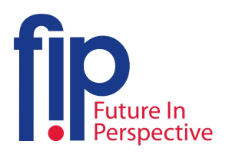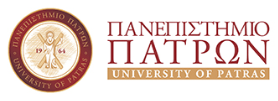The spread of disinformation has become a persistent challenge for the functioning of our democracies, affecting people's understanding of reality. SPOTit is a 2-year Erasmus+ project which responds to this challenge by developing young people’s media literacy skills. SPOTit developed innovative digital resources and harness powerful open-source technologies for vlogging to empower young people to critically assess the information they come across on social media. Additionally, the project foresees and emphasises the development of crucial 21st-century skills such as critical thinking, communication, and collaboration, building young people’s capacity for civic participation and active engagement.
Research shows that the most popular false information pieces in social media usually attract much more attention than real information, and false information spreads widely and very quickly across the web and reaches a huge population on social media (Kumar & Shah, 2018). Therefore, it is highly important to develop critical thinking and focus on media literacy initiatives which, according to the EU Media Literacy Expert Group, “includes all technical, cognitive, social, civic and creative capacities that allow a citizen to access, have a critical understanding of the media and interact with it” (Council of Europe).
Aim
SPOTit helps young people make informed decisions about the information they come across on social media by developing their media literacy skills.
Objectives
SPOTit has five objectives which are in line with the European Youth Strategy 2019-2027 and the Erasmus Programme Guide 2020 in the field of Youth:

It educates and supports youth workers and trainers’ acquisition of media literacy competences by developing learning resources and innovative tools using non-formal education.

Empower young people's capacity to use media literacy strategies for spotting fake news, and make responsible choices about the world of news around them.

Inspire youth workers and youth organizations to integrate the strategic use of ICT tools and open-source software in youth education, training and youth systems to combat disinformation and fake news.

Enhance young people’s skills such as critical thinking, communication, and digital skills, with the use of innovative digital tools and resources.

Increase the quality of youth work in Europe by modernizing the teaching practices of youth workers through the use of innovative approaches that are in line with young people’s daily habits and needs.

SPOTit Training Package
It educates and supports youth workers and trainers’ acquisition of media literacy competences by developing learning resources and innovative tools using non-formal education.
Download

MOOC for Combatting fake news
A Certified Massive Open Online Course for the professional development of youth workers which aims to educate and support them so that they are capable of helping young people develop their critical thinking skills and media literacy competences.
Visit

Digital Escape Rooms
Young people developed numerous competencies and skills such as media literacy, critical thinking, and problem solving, through a series of Digital Escape Rooms in which they must use technology to solve a series of puzzles.
Visit
To combat the threat of fake news, Forwardspace MTÜ has put together a cross-sector consortium which developed resources and provided training to youth workers and in extent to young people, empowering them by developing their media literacy. This enables young people to become critical readers and active participants in consuming digital information, by knowing how to discriminate between high-quality information, marketing hype, and harmful junk.
The SPOTit Training Package empowers youth workers by improving their media literacy skills and by helping them support young people in becoming critical thinkers. Youth workers developed a series of videos that teached young people how to debunk fake news they encounter online, such as conspiracy theories, scams, and hoaxes.
The MOOC for Combatting Fake News includes innovative teaching practices for media literacy, with an emphasis on the practice of vlogging for educating youth. The aim is to improve young people’s media literacy and digital skills. A Certificate of Completion validates the knowledge and skills acquired.
Young people developed numerous 21st century competencies and skills such as media literacy, critical thinking, and problem solving, through a series of Digital Escape Rooms in which they use technology to solve a series of puzzles.
Forwardspace MTÜ | www.forwardspace.ee
Forwardspace is a business development organization in Pärnu, Estonia, and is mainly focused on developing startups and IT sector environments. We also offer co-working spaces and an inspiring working environment in the center of Pärnu for businesses and freelancers. Forwardspace is a community of entrepreneurial professionals from a wide range of areas (from ICT to creative industry), supporting each other in a synergistic environment with the goal of growing their business and enriching individually. Forwardspace service users can also take part in different seminars and trainings, various business workshops, mentoring lessons, and meetings with investors and other leverage events. The mission of Forwardspace is to contribute to the local community by fostering young entrepreneurs, providing training offers and giving young people a reason to stay in Pärnu and strengthen their active participation in the local society. Forwardspace is co-operating with local city government, Pärnumaa Development Centre which belongs to the network of Estonian development centres.
CARDET is one of the leading research and training centers in the eastern Mediterranean region with global expertise in project design and implementation, project management, training and e-learning. CARDET has completed numerous projects relating to the development of adult and vocational training initiatives in the areas of social work, innovation and entrepreneurship. Members of its team and board represent European and International Higher education institutions, training centers and international organizations, and have in-depth knowledge of the adult training sector and financial literacy area while CARDET focuses in the promotion of social justice and social progress. CARDET brings together an international team of experts with decades of global expertise in adult training, capacity building, curriculum development, social entrepreneurship, vocational training, design thinking, innovation, education research, evaluation, and human resource development.
Future in Perspective | futureinperspective.com
Future In Perspective (FIP) works in the fields of youth development, adult education, vocational training, e-learning, digital media and social inclusion. The company specializes in the development of innovative educational materials and course-ware specifically targeted at non-mainstream educational providers. The company generally works to address the needsof those on the margins of society for whom traditional education and second chance education has failed. FIP places a particular emphasis on developing self-directed learning pathways to encourage the educational development of “Free Agent Learners”. FIP harnesses the latest technologies in its service offering building the skills of front-line youth professionals and volunteers enabling youth target group members to develop their key competences in unique action learning and blended learning environments.
University of Patras | www.upatras.gr
The University of Patras (UofP) is located in Patras, Achaia, Greece, and was founded in 1964, consisting of 7 schools and 35 departments. It caters for a large number of sectors and consequently a great range of disciplines through 35 undergraduate and 50 postgraduate study programs. One of its main goals is the creation of new knowledge through the promotion of scientific research. This makes the university particularly active in research, with a high reputation for quality and innovativeness. In the QS World Ranking / Top Universities (2020), UofP is ranked 751-800. Along with its other activities, UofP operates the Foreign Language Teaching Unit and the Educational Center for life-long learning. The university runs an undergraduate, graduate, and doctoral program in business administration following the latest scientific developments and covers a full range of topics related to business administration in private, public, and non-profit sector and entrepreneurship.
Izobrazevalni center Geoss d.o.o. | www.ic-geoss.si
Education Centre Geoss is non-profit adult education center founded and owned by the Municipality of Litija in Slovenia. They are implementing publicly recognized formal secondary education programs for adults, higher educational programs for adults, informal publicly valid educational trainings for young people and non formal education programmes for different target groups for more than 60 years. In cooperation with the employment office, centers for social work, NGOs, private and public institutions, and schools, they develop and implement inclusive andragogical programs and materials for their educators/mentors/counselors and for vulnerable groups with fewer opportunities – their members/clients/target groups (migrants, refugees, rural population, people with intellectual disabilities, unemployed, lower educated, drop-outs, elderly people, people with mild disorders-dyslexia, disabled people).
Project Overview
The spread of disinformation has become a persistent challenge for the functioning of our democracies, affecting people's understanding of reality. SPOTit is a 2-year Erasmus+ project which responds to this challenge by developing young people’s media literacy skills. SPOTit developed innovative digital resources and harness powerful open-source technologies for vlogging to empower young people to critically assess the information they come across on social media. Additionally, the project foresees and emphasises the development of crucial 21st-century skills such as critical thinking, communication, and collaboration, building young people’s capacity for civic participation and active engagement.
Research shows that the most popular false information pieces in social media usually attract much more attention than real information, and false information spreads widely and very quickly across the web and reaches a huge population on social media (Kumar & Shah, 2018). Therefore, it is highly important to develop critical thinking and focus on media literacy initiatives which, according to the EU Media Literacy Expert Group, “includes all technical, cognitive, social, civic and creative capacities that allow a citizen to access, have a critical understanding of the media and interact with it” (Council of Europe).
Aim & Objectives
Aim
SPOTit helps young people make informed decisions about the information they come across on social media by developing their media literacy skills.
Objectives
SPOTit has five objectives which are in line with the European Youth Strategy 2019-2027 and the Erasmus Programme Guide 2020 in the field of Youth:

It educates and supports youth workers and trainers’ acquisition of media literacy competences by developing learning resources and innovative tools using non-formal education.

Empower young people's capacity to use media literacy strategies for spotting fake news, and make responsible choices about the world of news around them.

Inspire youth workers and youth organizations to integrate the strategic use of ICT tools and open-source software in youth education, training and youth systems to combat disinformation and fake news.

Enhance young people’s skills such as critical thinking, communication, and digital skills, with the use of innovative digital tools and resources.

Increase the quality of youth work in Europe by modernizing the teaching practices of youth workers through the use of innovative approaches that are in line with young people’s daily habits and needs.
Outputs

SPOTit Training Package
It educates and supports youth workers and trainers’ acquisition of media literacy competences by developing learning resources and innovative tools using non-formal education.
Download

MOOC for Combatting fake news
A Certified Massive Open Online Course for the professional development of youth workers which aims to educate and support them so that they are capable of helping young people develop their critical thinking skills and media literacy competences.
Visit

Digital Escape Rooms
Young people developed numerous competencies and skills such as media literacy, critical thinking, and problem solving, through a series of Digital Escape Rooms in which they must use technology to solve a series of puzzles.
Visit
Methodology
To combat the threat of fake news, Forwardspace MTÜ has put together a cross-sector consortium which developed resources and provided training to youth workers and in extent to young people, empowering them by developing their media literacy. This enables young people to become critical readers and active participants in consuming digital information, by knowing how to discriminate between high-quality information, marketing hype, and harmful junk.
The SPOTit Training Package empowers youth workers by improving their media literacy skills and by helping them support young people in becoming critical thinkers. Youth workers developed a series of videos that teached young people how to debunk fake news they encounter online, such as conspiracy theories, scams, and hoaxes.
The MOOC for Combatting Fake News includes innovative teaching practices for media literacy, with an emphasis on the practice of vlogging for educating youth. The aim is to improve young people’s media literacy and digital skills. A Certificate of Completion validates the knowledge and skills acquired.
Young people developed numerous 21st century competencies and skills such as media literacy, critical thinking, and problem solving, through a series of Digital Escape Rooms in which they use technology to solve a series of puzzles.













